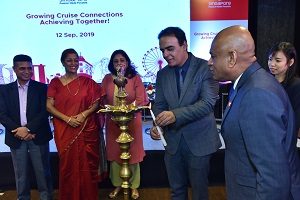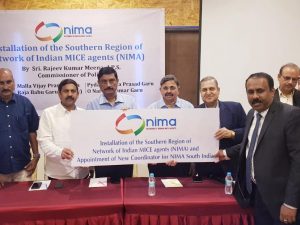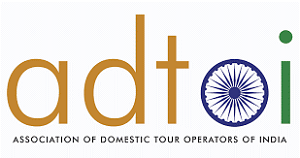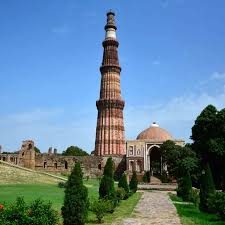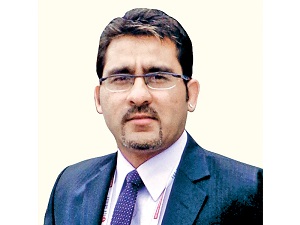The Singapore Cruise Forum, held at The Le Meridien, New Delhi, saw major players from the travel trade coming under one roof to discuss and explore the cruise market in India and trends around the same. GB Srithar, Regional Director, India, Middle East & South Asia, International Group, Singapore Tourism Board, addresses the gathering and mentions the key highlights related to this industry. He says, “The Cruise Forum today sets out to achieve two objectives. First, for the cruise and travel trade partners here to gain insights from the thought-leadership presentations, and secondly, to exchange views during the panel discussions and engage in meaningful conversations and networking with like-minded individuals for us to grow cruise holiday-makers in India and continue entrenching Singapore as a major cruise destination and hub.”
Read More »NIMA launches its Southern Region office in Vizag
NIMA has recently launched its Southern Region office in Vizag. K Vijay Mohan was nominated as the co-ordinator for the Southern Region. The Commissioner of Police, Vizag, Rajeev Kumar Meena graced the occasion. Former MLA Malla Vijay Prasad, Entrepreneur Pyda Krishan Prasad, Raja Babu of Sunray Resorts and Naresh Kumar were other dignitaries present during the launch. NIMA’s National Coordinator Gajesh Girdhar, Rakesh Arora and Jagdeep Bhagat were present too. The State Chapters for Telangana with Siraj Ansari as it’s State Coordinator and Andhra Pradesh with Dheeraj Praharaju as it’s State Coordinator were also installed during the recent visit of NIMA’s National team to the region.
Read More »TTC launches e-learning program for Luxury Gold
Luxury Gold, that offers luxury guided journeys, has announced the launch of its brand new e-learning program called the Luxury Gold Masterclass, offered through The Travel Corporation’s Travel Agent Academy. Created with travel advisors in mind to help increase their earning potential, the new Luxury Gold Masterclass will allow them to become a brand expert. The program has been designed with an interactive suite of user-friendly modules, providing advisors the knowledge and tools to better sell its luxury guided journeys in an efficient manner, while thanking them for their dedication with exciting rewards. Anthony Lim, Insight Vacations and Luxury Gold Managing Director, Asia, says, “Our new Luxury Gold Masterclass offers Travel Advisors to become a Luxury Gold Expert and increase their sales through up-to-date information on our offerings and in-depth knowledge to delight their clients with. Ultimately, we created the Masterclass with our loyal Advisors in mind to help them sell journeys beyond the ordinary and we’re rewarding them for their commitment by offering eligibility for FAM trips and opportunities to earn discounts on our journeys.” The eLearning platform is divided into three levels and Travel Advisors can access the first level, Sapphire, which is available now. The modules cover an introduction to the brand, the Luxury Gold difference, tools for selling the journeys and information on the brand’s one-of-a-kind Chairman’s Collection consisting of exceptional VIP experiences, personally curated by The Travel Corporation (TTC)’s Chairman, Stanley Tollman. Travel advisors can register for the eLearning program by following the link, offering three simple steps after registering through the TTC Academy and receiving an email to sign up and begin the Luxury Gold Masterclass.
Read More »Travel Luxury Show’s knowledge session to educate partners on luxury travel market
Travel Luxury Show 2019 is scheduled from September 14-15, 2019 at the Crowne Plaza Jaipur. This show will connect sellers to the travel trade luxury buyers across India, targeting Tier-II and Tier-III cities. The show will also stage knowledge session where industry stalwarts will educate the audience on the evolving luxury travel market in the country.
Read More »ADTOI to launch its 11th Chapter in Madhya Pradesh
ADTOI is going to launch its 11th Chapter in Madhya Pradesh on September 08, 2019 at Minto Hall, Bhopal, Madhya Pradesh. Surendra Singh Baghel, Hon’ble Tourism Minister of Madhya Pradesh has very kindly accorded his consent to grace the occasion as Chief Guest of the function. Shri. Faiz Ahmed Kidwai, Managing Director, Madhya Pradesh Tourism Board will also be present during the chapter launch. Names of the nominated Office Bearers of the ADTOI M.P. chapter are as follows:-ATUL SINGH OF TRAVEL CONNECTION, INDORE- CHAPTER CHAIRMAN. PRATUL TRIVEDI OF LETZ GO MICE, INDORE- CHAPTER SECRETARY SANDEEP PANDYA OF TOUR TRAVEL WORLD, BHOPAL- CHAPTER TREASURER NEELAM SINGH OF TRAVEL INDIA TOURISM, BHOPAL- CHAPTER LADY ENTREPRENEUR OFFICER (LEO)
Read More »‘Small Luxury Hotels of The World’ holds partners meet in Mumbai & Delhi
Small Luxury Hotels of The World (SLH), with its India Representatives, ISA Tourism, conducted series of sales meetings with important travel partners and organised Key Partners Meet in Mumbai and New Delhi. SLH has more than 500 member hotels in over 80 countries. In Asia Pacific, there are more than 100 member hotels in its portfolio that offer unique luxury experiences complemented with the highest standards of intuitive service to independently minded upscale travellers. “To augment the brand presence of SLH and to grow the number of discerning Indian guests at our hotels and resorts, it is our first meet conducted at Mumbai and New Delhi with first batch of select key partners that are already booking with us. The meet was also aimed to educate the partners about new SLH affiliated hotels and update them on the channels of bookings. Now with our representative office in India, it is important for us to enhance our local sales presence and provide better customer service to our travel partners.” said Mark Wong, Vice President Asia Pacific of SLH. The event focused onboosting SLH brand awareness with the travel trade and driving reservations from the luxury outbound travel market. Additionally, it will generate leads for small corporate meetings and leisure groups including family travel and small wedding groups. Travel consultants were given more insight on the destinations, niche accommodation, unique activities et al, that is not easily accessible to a casual browser (end customer) planning a trip.
Read More »Foreigners can now avail Rs 50 discount on Qutub Minar tickets bought online
As part of a new facility to ease visitors and skip the queue at Qutub Minar, tourists can purchase tickets online at a discounted rate or just by scanning the QR code through their mobile cameras. Tickets can be booked at asi.payyoumoney.com. Tickets for foreigners is Rs 600, if bought online or by scanning QR codes, they will get it at Rs 550 and for Indians a ticket costs Rs 40, but after discount it will be Rs 35. The culture ministry is planning to extend the discount to all other monuments also. The ministry has also decided to illuminate the Qutub Minar from 7pm-11pm with architectural LED at a monthly cost of Rs 16,615 to boost night tourism. As part of the effort to increase footfall in the evening, timings for public entry at Red Fort, Safdarjung Tomb and Humayun’s Tomb have also been extended to 9 pm. Qutub Minar, however, is already open till 10 pm.
Read More »Travstarz to launch new one-stop online B2B reservation system next month
Travstarz is all set to launch a new online reservation system which will be a one-stop shop for all B2B travel requirements for agents. Pankaj Nagpal, Managing Director, Travstarz Global Group reveals, “We are launching our online reservation system next month, and all our products—flights, DMCs, visa, cruises and insurance— are going to be available on this system. It is not the global reservation system. This is going to be a DMC specific reservation system, where our 21 DMC locations will be available online. Hence, if someone wants to book hotels, tours or transfers in our DMC locations, they can do it on the system. Plus we have cruises, which agents can book from all the cruise lines we deal in, on the new system. With the new system, everything is bookable online with real time confirmations. We already have insurance live on the system, and we are looking forward to the online system now.”
Read More »Bird Travels appointed as GSA for Tajikistan based Somon Air
Bird Travels has been appointed as the GSA for Somon Air in India. Somon Air is a private airlines based in Dushanbe, Tajikistan. Bird Travels will soon be launching online operations from Delhi to Dushanbe (subject to government approval).
Read More »Travstarz educates agents about their cruise products
Travstarz Cruises, the cruise division of Travstarz Global Group, along with Dream Cruises organised a product presentation for travel agents and tour operators in New Delhi. Attended by around 150 agents, the presentation was followed by a networking cocktail and dinner. Pankaj Nagpal, MD and CEO, TravStarz Global Group, said that after starting their cruise division in November 2018, they have seen a great demand for cruise products and since they are the PSAs for Dream Cruises, they wanted to update the members about different products in their portfolio. He insisted that the last season for cruises was quite good and they are hoping to increase it further going forward.
Read More » Tourism Breaking News
Tourism Breaking News
